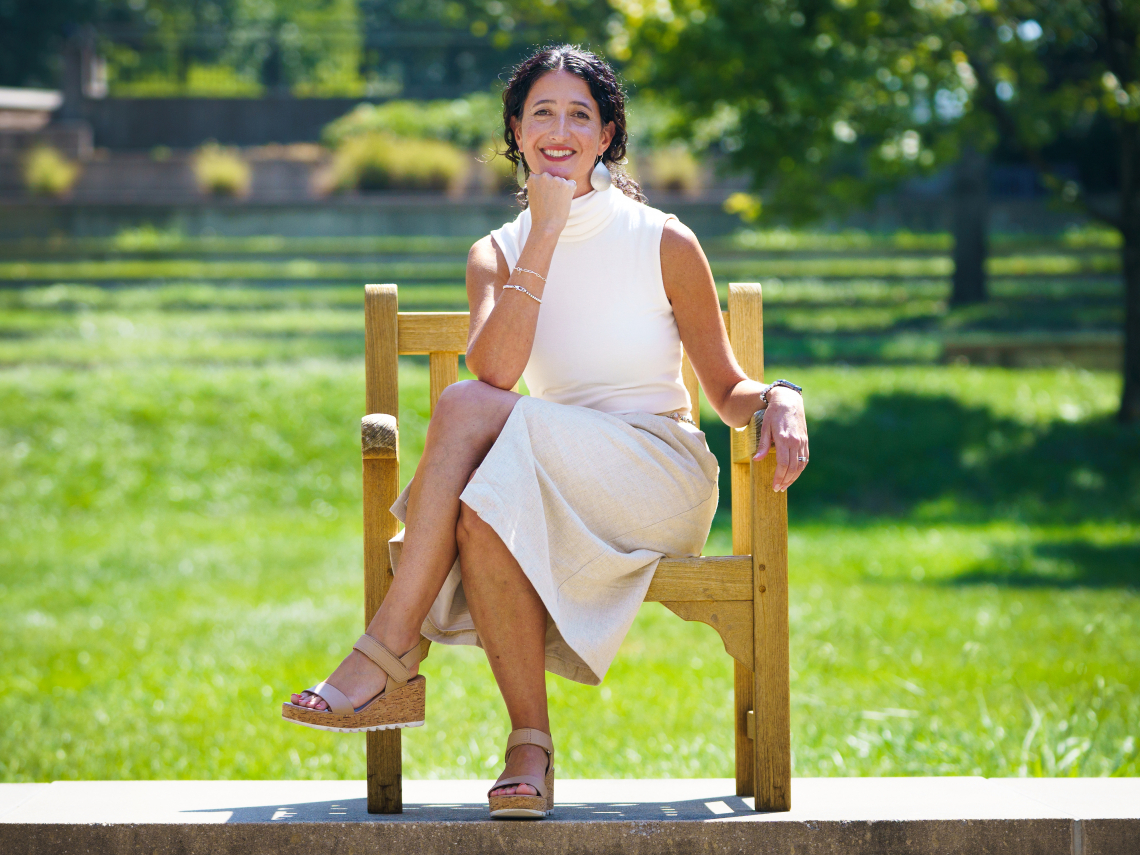Kelly Hogan Is Making Intro Classes Fun, Effective and Equitable
A new chapter in the storied rivalry between Duke and the University of North Carolina will begin this fall when Kelly Hogan trades her Biology classroom in Chapel Hill for one in Durham.
Hogan obtained her doctorate at UNC, then joined the faculty as a Biology professor and associate dean of instructional innovation in the university’s College of Arts & Sciences. Donning Duke blue will be a fresh challenge, as well as an “opportunity for growth, and to have experiences with a new group of students and colleagues,” she said.
Fortunately, Hogan loves a challenge — which might be why she’s become an expert in pedagogy and inclusive teaching. As a professor of the practice at Duke, she’ll help make the often dauntingly large introductory Biology classes more engaging, welcoming and equitable.
Hogan’s love of biology blossomed in the eighth grade. “I was lucky that nobody took the fun out of it,” she said. “We hear so much about students who want to do science and get discouraged at some point along the way.”
Following that curiosity for science, Hogan majored in biology at the College of New Jersey as an undergraduate. The fact that she planned to attend graduate school meant she “didn’t get caught up in a competitive pre-med culture,” she said. But she entered her doctoral program in pathology and laboratory medicine with some naivety about how science works.
Once Hogan joined the UNC faculty, she began to question how STEM classes are taught. She became interested in racial and ethnic grade discrepancies when she saw a spreadsheet from one of her courses that was disaggregated in a way she had never seen. Hogan made it her mission to provide the structure all students need to succeed, regardless of their backgrounds and academic preparation. The strategies help even those already likely to succeed, Hogan found.
After learning about research by the science pedagogy expert Scott Freeman, Hogan connected with him about their shared interest in educational equity. Freeman provided a postdoc, Sarah Eddy, to help Hogan analyze classroom data.
“It was an act of kindness and mentorship,” Hogan said. “Our findings were incredible. The changes I implemented not only helped everybody, but reduced the inequities and discrepancies I saw on that original spreadsheet. It was encouraging to see something had changed.”
The methods Hogan has refined over her career led to “Inclusive Teaching,” the book she published in 2022 with her coauthor Viji Sathy. The handbook offers the concrete actions the two professors have used in their classrooms. For Hogan, those include guided reading questions, preclass homework, and in-class polls. Other changes, like proactively reaching out to struggling students, showcase the kind of attentive educator Hogan hopes to be.
One of her guiding principles is seeking out ways to infuse enjoyment and novelty in class, especially in large introductory lectures. Sometimes, when Hogan asks the class a question, she has them jot down answers on pieces of paper, crumple them into balls and throw them at her and the TAs. The bit of fun gives students the boost they need to stay engaged and active.
Hogan’s approach reorients how lessons are presented and how students study, allowing her to build an educational environment that reduces systemic inequality. Students are taught what good learning looks like not just on the first day, but throughout the semester.
“You have to personalize the lessons,” Hogan said. “Learning has to be personal, and you have to be invested. When you are used to always getting things right, getting something wrong wakes you up. Now you’re invested.”
Hogan’s favorite part of teaching is interacting with the students, so she’s enthusiastic about building one-on-one relationships with them when the new semester begins. The challenge of supporting a new cohort of young biologists is what it’s all about.

